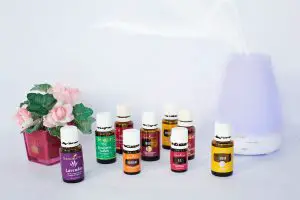Table of Contents
Overview
Swollen body parts that can cause painful joints and muscle pains might be a very bothersome feat on your daily things to do. Gladly, anti-inflammatory creams, balms, rubs, and salves are readily available, and some you can even make at home. Natural and homemade remedies can be fairly easy to make and are known to be effective, especially if you use them in combination with other treatment options. There are plants, fruits, herbs, and essential oils containing anti-inflammatory properties that can help with your muscle and joint pains and even arthritis.
Topicals are generally easy to use; that is why creams and balms are a common favorite when it comes to reducing inflammation and pain. This post will be mainly about topical anti-inflammatories and other important and helpful information that you may want to know as well. However, let me remind you that before you choose natural and homemade remedies as anti-inflammatories, make sure that it would be fine with your physician and not cause you in the future.
What are topical anti-inflammatories?
Topical anti-inflammatories are created to be applied directly to the skin when there is swelling and pain. They usually come as creams, rubs, or solutions that contain a non-steroidal agent that works in treating symptoms such as inflammation, swelling, pain, and stiffness. Topical anti-inflammatories are not very likely to cause gastrointestinal effects and interact with other medication, unlike those taken orally. That is why topical anti-inflammatories are a good solution for those experiencing symptoms that are not very severe and can be managed with topical anti-inflammatory creams and balms. The common side effect of topical anti-inflammatories is just redness or itching at the application site and short-lived effect or relief.
Natural topical anti-inflammatories
Aloe vera
Aloe vera is one of the most commonly used plants in alternative medicine. Nowadays, aloe vera can be readily available in different forms such as gels, powders, and the most natural, as a leaf. It has been known for a long time because of its effective healing properties and the treatment of other skin issues. You can easily and directly apply aloe vera to your skin.
Frankincense
This alternative medicine is scientifically known as Boswellia Serrata and is also known for its anti-inflammatory properties. According to studies, boswellic acid has shown anti-inflammatory properties that could greatly help people with rheumatoid arthritis and gout. They are commonly found as topical creams.
Cat’s claw
This is another popular herb known for its anti-inflammatory properties that are known to effective in reducing swelling. It is derived from the bark and root of a tropical vine that grows in South and Central America. Many people have been using cat’s claw to use it as an anti-inflammatory and boost the immune system.
Eucalyptus
Eucalyptus extract from leaves is commonly used as a topical remedy to reduce pain and inflammation. The tannins in the eucalyptus plant are what make it an effective anti-inflammatory and pain reliever. When using eucalyptus, always remember to check for allergies and dilute it with a carrier oil before using it.
Ginger
Ginger can be easily found in anyone’s pantry, and it is also known to have great medicinal effects. The compound that provides its strong flavor and aroma are also the ones responsible for its anti-inflammatory properties. In ancient times, ginger has been already used to treat nausea, but it can also effectively reduce inflammation and pain. They can be used topically and can be ingested as well.
Green tea
Green tea is ultimately rich in antioxidants, and this is what makes it an infective anti-inflammatory topical. Many people have used green tea-infused bags or directly place a used tea bag onto the affected area to relieve pain and inflammation.
Turmeric
Turmeric is often compared to ginger, and it is a yellow substance made from a flowering plant with curcumin as the main ingredient. Curcumin has anti-inflammatory properties and has been utilized in many traditional medicines. You can use turmeric powders and incorporate them in balms and creams as a topical anti-inflammatory.
Cayenne powder
The capsaicin in the cayenne peppers has been proven to have anti-inflammatory effects on our bodies. That is why cayenne peppers are now being incorporated in homemade remedies to relieve inflammation and pain.
Essential oils
Essential oils have been relatively famous nowadays, and they can also be used to reduce inflammation as well. Certain essential oils can be effective as topical anti-inflammatories, including copaiba, lemongrass, peppermint, eucalyptus, lavender, and wintergreen essential oils. You can combine them and dilute them with a carrier oil.
How to make anti-inflammatory cream
You can easily make anti-inflammatory creams at home and use any of the items above and combine them with a carrier oil or another ingredient that might suit them well. Here are videos showing some recipes of homemade anti-inflammatory topicals that you can easily do at home.
How topical anti-inflammatories work
Topical anti-inflammatories work by blocking or inhibiting chemicals involved in the production of pain and inflammation at the site of injury or damage. Topicals differ from orally-taken medicines since they do not have an effect throughout the body; instead, they will only work on the area where you applied them. Topical anti-inflammatories are known to effectively reduce swelling only on the superficial parts of the body, such as joints and muscles. Topical anti-inflammatories are also known to have short-lived effects, but they have little to no side effects as well.
Using topical anti-inflammatories
Whether they are homemade or store-bought, you should always be gentle when applying the topical cream or balm on your skin. Always follow instructions given like how much you would have to apply, how to apply, and take note of ingredients’ sensitivity to light if there are any. Avoid applying them on broken skin or wounds and anywhere near the eyes, mouths, and genital area. Also, remember to always wash your hands before and after applying your topical anti-inflammatory cream.
Natural supplements to fight inflammation
If you want to pair your topicals with some supplements, you can certainly do so. Here are some natural anti-inflammatory supplements that you may want to try:
- Omega-3 fatty acids and fish oil
- Curcumin, an active ingredient in turmeric
- SAM-e or S-adenosylmethionine
- Magnesium and zinc
- Green tea capsules
- Capsaicin capsules
- Cat’s claw supplements
- Frankincense supplements
Ask your doctor
It is very important that you ask your doctor to use homemade anti-inflammatory topicals for your swelling pain. Some doctors would approve of homemade remedies if they will work or depending on the extent of the pain and swelling as well. Also, homemade anti-inflammatory topicals or creams will work great for people who have allergies to NSAIDs and other pain medications. Your doctor might want to have your natural treatment paired with medications, or they would allow plain homemade remedies. It is also important that you understand what you are doing and the possible reactions it might have towards you and your body. There are also anti-inflammatory topicals that can be easily bought over the counter.
Final thoughts
There are many ways for you to relieve pain and inflammation within the comforts of your home. You may just have to pick the right ingredients and know what to do. Also, make sure that you have no allergic reactions to the ingredients that you will be using. Pairing your home remedy with natural supplements will also be a great idea.

